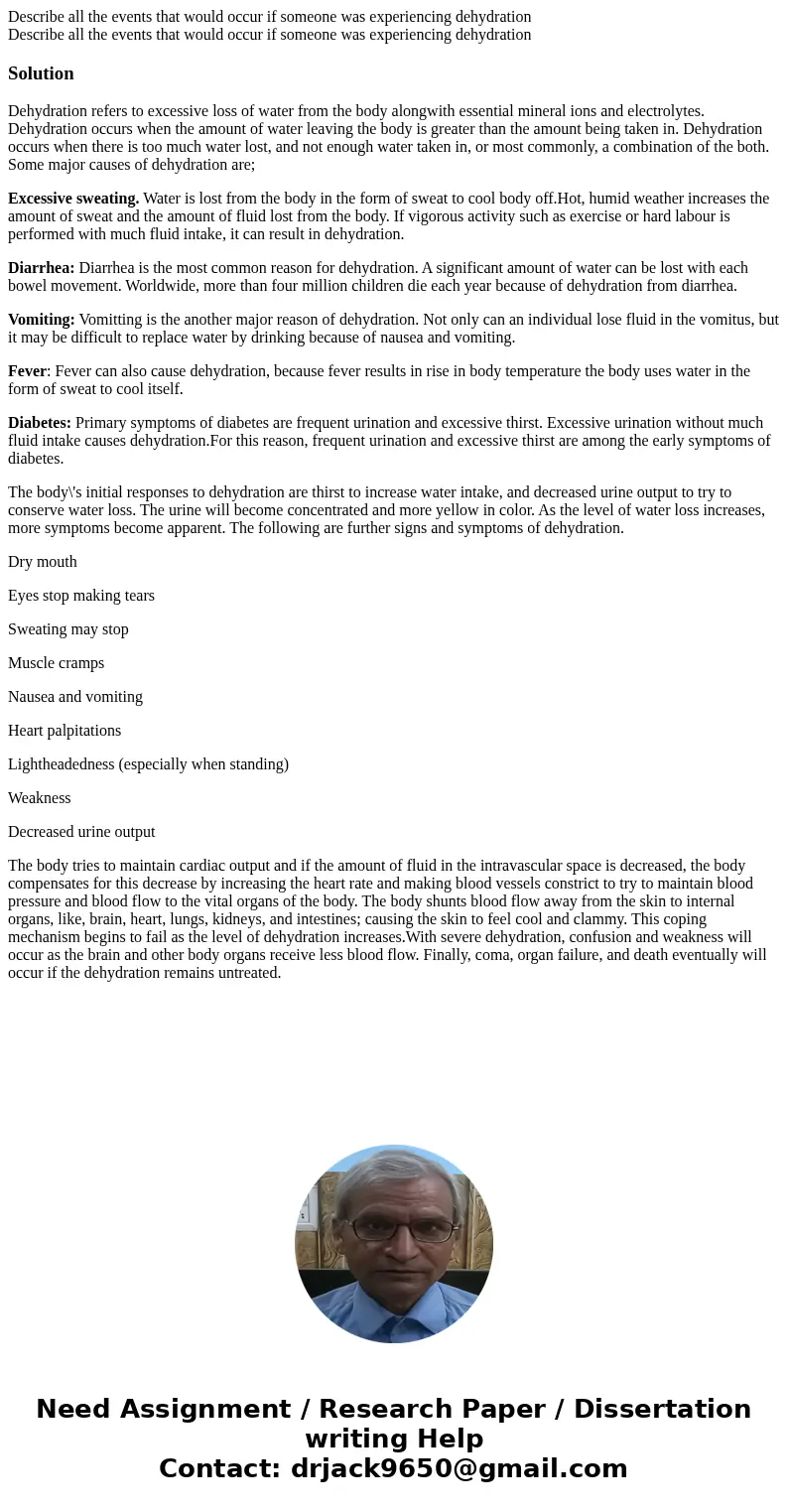Describe all the events that would occur if someone was expe
Solution
Dehydration refers to excessive loss of water from the body alongwith essential mineral ions and electrolytes. Dehydration occurs when the amount of water leaving the body is greater than the amount being taken in. Dehydration occurs when there is too much water lost, and not enough water taken in, or most commonly, a combination of the both. Some major causes of dehydration are;
Excessive sweating. Water is lost from the body in the form of sweat to cool body off.Hot, humid weather increases the amount of sweat and the amount of fluid lost from the body. If vigorous activity such as exercise or hard labour is performed with much fluid intake, it can result in dehydration.
Diarrhea: Diarrhea is the most common reason for dehydration. A significant amount of water can be lost with each bowel movement. Worldwide, more than four million children die each year because of dehydration from diarrhea.
Vomiting: Vomitting is the another major reason of dehydration. Not only can an individual lose fluid in the vomitus, but it may be difficult to replace water by drinking because of nausea and vomiting.
Fever: Fever can also cause dehydration, because fever results in rise in body temperature the body uses water in the form of sweat to cool itself.
Diabetes: Primary symptoms of diabetes are frequent urination and excessive thirst. Excessive urination without much fluid intake causes dehydration.For this reason, frequent urination and excessive thirst are among the early symptoms of diabetes.
The body\'s initial responses to dehydration are thirst to increase water intake, and decreased urine output to try to conserve water loss. The urine will become concentrated and more yellow in color. As the level of water loss increases, more symptoms become apparent. The following are further signs and symptoms of dehydration.
Dry mouth
Eyes stop making tears
Sweating may stop
Muscle cramps
Nausea and vomiting
Heart palpitations
Lightheadedness (especially when standing)
Weakness
Decreased urine output
The body tries to maintain cardiac output and if the amount of fluid in the intravascular space is decreased, the body compensates for this decrease by increasing the heart rate and making blood vessels constrict to try to maintain blood pressure and blood flow to the vital organs of the body. The body shunts blood flow away from the skin to internal organs, like, brain, heart, lungs, kidneys, and intestines; causing the skin to feel cool and clammy. This coping mechanism begins to fail as the level of dehydration increases.With severe dehydration, confusion and weakness will occur as the brain and other body organs receive less blood flow. Finally, coma, organ failure, and death eventually will occur if the dehydration remains untreated.

 Homework Sourse
Homework Sourse